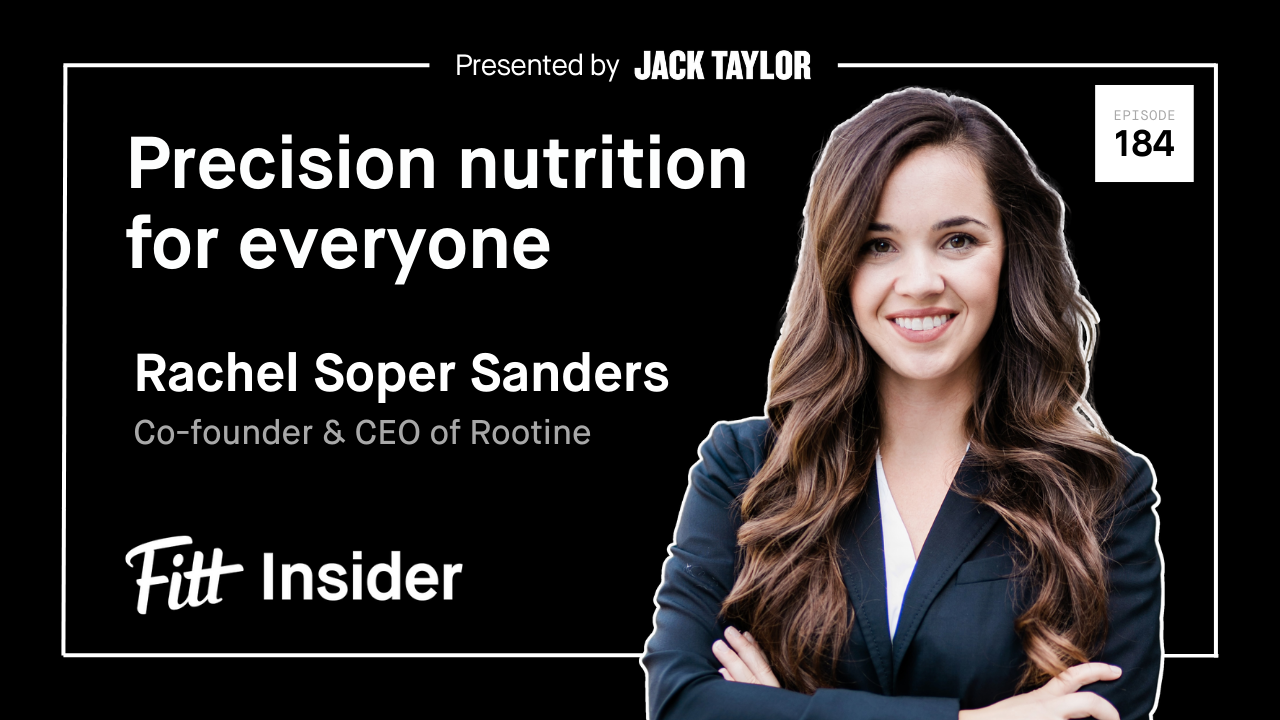Issue No. 231: Food Fight
 Illustration: Courtney Powell
Illustration: Courtney Powell
Big Food has a big problem with the word “healthy.”
Label Maker
Last fall, the FDA proposed new guidelines for foods claiming to be “healthy.”
Decades in the making, the latest proposal would cap saturated fat, sodium, and added sugar levels in so-called “healthy” products.
A bridge too far, the Consumer Brands Association (CBA) responded on behalf of 1.7K food companies, including giants General Mills, PepsiCo, Kellogg’s, and others, noting:
“We are particularly concerned by the overly stringent proposed added sugars thresholds… given the lack of scientific consensus on the relationship between sugar intake and diet-related disease.”
More specifically, the filing argues that a brand’s right to use the term “healthy” is protected by the First Amendment and can’t be infringed by the FDA.
Joining in, hundreds more food makers sided with the CBA, agreeing that–for profit’s sake—the definition of healthy isn’t up for debate.
Rigged System
For all the pomp and circumstance, the FDA isn’t overly confident in its plan:
“We estimate that a small number (0 to 0.4 percent of people that try to follow current dietary guidelines) of these consumers would use the ‘healthy’ implied nutrient content claim to make meaningful, long-lasting food purchasing decisions.”
Still, the agency says redefining “healthy” aligns the term with the nation’s dietary guidelines and nutrition labels.
But, simply realigning a broken system ignores the real issues at play.
- 1.6K Americans die every day from chronic diet-related illnesses, such as obesity, diabetes, heart disease, and cancer.
- 95% of members advising the 2022–2025 US dietary guidelines initiative had conflicts of interest with food or pharmaceutical influences.
- The food industry spends 80% of its $14B annual marketing budget on promoting unhealthy choices like fast food, sugary drinks, and candy.
No surprise, Big Food spends big bucks to shape the nation’s nutrition policies — including payments to the Academy of Nutrition and Dietetics and American Academy of Pediatrics, among others.
Food Fiends
A red flag, as TrueMed co-founder Calley Means explained on the Fitt Insider Podcast, this strategy is working:
“Our food is weaponized to be addictive, and there’s a lot of lobbying to make it cheap.”
Not an exaggeration, there’s growing evidence that our food is killing us:
- 86% of products sold by America’s largest food manufacturers are ultra-processed.
- 13% of US adults are addicted to highly processed foods, while 44% show symptoms.
- Recent studies link ultra-processed foods to increased risk of Alzheimer’s, cancer, and early death.
Straight to the point, last fall, researchers said highly processed foods should be considered addictive substances on par with tobacco.
But, despite mounting proof, nutrition experts and industry advocates argue that we lack adequate research on the effects.
Tackling this claim, a recent NIH study found that people who ate a diet of ultra-processed foods for two weeks gained weight and body fat.
On a separate occasion, when those same people consumed minimally processed meals with matching amounts of fat, sugar, and sodium, they lost weight.
Looking ahead: With business objectives and economic incentives directly contradicting what’s best for our collective health, it’s hard to see how anything changes without a fight.
Well, that’s exactly what TrueMed’s Means called for, a top-down and bottom-up “revolution” where consumers and healthtech innovators disrupt the status quo.
No, it won’t be easy, but it’s a mission we can get behind.
🎙 On the Podcast

Rootine co-founder and CEO Rachel Soper Sanders explains how precision nutrition breaks down barriers between wellness and healthcare.
We also cover: the trouble with unregulated supplements, democratizing health data, and personalizing well-being.
Listen to today’s episode here
💪 WHOOP bulks up with new strength training feature
Expanding the capabilities of its 4.0 strap, WHOOP launched Strength Trainer, a new feature that measures weightlifting’s impact on the body.
Quantified gains. Using the company’s wrist-worn device, Strength Trainer tracks exercises, reps, and weight lifted to calculate muscular load — quantifying how strength workouts affect the musculoskeletal system.
By factoring the muscular load metric into the WHOOP Strain score, the new tech helps users better understand the effects of both cardiovascular and muscular training.
This move follows the company’s 2021 acquisition of strength-focused wearable PUSH.
Doubling down. Appearing on the Fitt Insider Podcast in February, WHOOP CEO Will Ahmed teased the new strength training feature:
“We’re going really deep on weightlifting, which is an area members have been craving and hasn’t existed in the wearables market.”
According to Ahmed, this launch aligns with a broader strategy of “doubling down” on the company’s subscriber base, particularly in a tough economic climate, adding:
“I think good advice for any consumer business, and especially any subscription business, is to really focus on existing members, and double down on them. Make sure you’re coming out with new features, new functionality, being really thoughtful for that audience.”
Heeding his own advice, WHOOP has been busy in recent months, lowering the price of its subscription, debuting stress tracking and breathwork protocols, and unveiling a developer platform.
Punchline: In a crowded wearables market, WHOOP is rolling out new features to outmaneuver competitors by appealing to high-performers. Meanwhile, the smart strength sector is getting even smarter, as new tech for optimizing training becomes more accessible.
✍️ Eyeing mental health, Apple readies journaling app
The tech giant is reportedly developing a self-journaling app to be pre-installed with the forthcoming iOS 17 update.
Write this way. Dubbed “Jurassic,” the project aims to improve mental and physical health by encouraging users to write down daily thoughts and feelings.
Tracking location, Apple Health data, and more, the company’s AI will suggest prompts and make connections to subjects or people that users regularly jot down.
Note to self. An effective mindfulness practice, multiple studies link journaling to increased optimism and resilience.
Taking notice, journaling has become a common complement to meditation, breathwork, and digital mental health platforms:
- Happy Ring’s stress-detecting sensors prescribe CBT-based therapeutic writing.
- Headspace and Calm apps create meditative soundtracks for creative and gratitude-based journaling.
- Real’s app programs Moments, five-minute exercises like journaling and self-talk therapy, to address anxiety, sleeplessness, and more.
Elsewhere, established apps are getting scooped up — French B2B health platform Alan acquired journaling app Jour for $20M, while WordPress parent company Automattic bought Day One, Apple’s App of the Year in 2012 with 15M+ downloads to date.
Locked away. But, developers and users are wary that Apple holds the key to their diary.
In particular, Day One founder Paul Mayne told the WSJ that Apple’s entrance into journaling would create new competition. More concerning, Mayne said Day One was being “sherlocked” — referring to Apple’s alleged piracy of third-party developers.
Looking ahead: With stress, burnout, and depression on the rise, Apple’s foray into journaling could fill a void while also expanding its effort to become the “center of health”.
📰 News & Notes
- Oura enters Best Buy.
- adidas seeks test subjects to quantify the runner’s high.
- Othership jumps on Daybreaker’s sober morning dance party tour.
- Fitt Jobs: Apply to hundreds of jobs in the health & fitness industry.
- Athletes turn to psychedelic therapy. [Re-read: Sports x Psychedelics]
- Any Distance opens waitlist for its new active lifestyle social network.
- Headlines x PsyMed Ventures: investors backing mental health companies.
- Gympass brings food tracking to employees with MyFitnessPal partnership.
- Startup Q&A: The Healing Company’s Simon Belsham on integrated health branding.
💰 Money Moves
- Define Ventures, an early-stage VC focused on digital health companies, raised $460M across two new funds.
- Vice Ventures raised $25M for a fund it plans to deploy into sextech, esports, cannabis, and psychedelic startups.
- Springbok Analytics, an AI imaging and insight platform for human performance, added $3M in an oversubscribed seed round led by Transition Equity Partners.
- Autism care company Cortica closed a $75M funding round and acquired Springtide Child Development, operator of six integrated autism centers in the Northeast.
- XRHealth, maker of VR therapeutics, merged with Spain’s Amelia Virtual Care, a VR platform for mental health professionals.
- Budget gym operator Chuze Fitness acquired Bailey’s Health & Fitness, a Jacksonville-based gym chain with 16 locations.
- Organic breakfast bar maker Olyra Foods secured an undisclosed investment from international food company Grupo Bimbo.
- Karate Combat, a crypto-connected, mixed reality fighting league, raised $18M in a funding round led by BITKRAFT Ventures.
- German better-for-you snacks maker KoRo added €20M ($21.9M) in a Series B round.
- Gather Health, an integrated primary care provider for older adults, added $15M in a Series A round.
- Healthtech and wearable maker Masimo acquired Nura, an Australian maker of self-adjusting headphones for those with hearing sensitivities.
- Spot2Nite, an RV and campsite booking platform, raised $3M in a Series A round.
- Health food manufacturer Pangea acquired organic juice company Glory Juice.
- Stryve Foods, a better-for-you meat snack company, raised $4.1M in debt financing.
- BEGiN, an early childhood learning platform, landed a strategic investment from ChopraX, a venture platform for holistic health brands.
Today’s newsletter was brought to you by Anthony Vennare, Joe Vennare, and Ryan Deer.